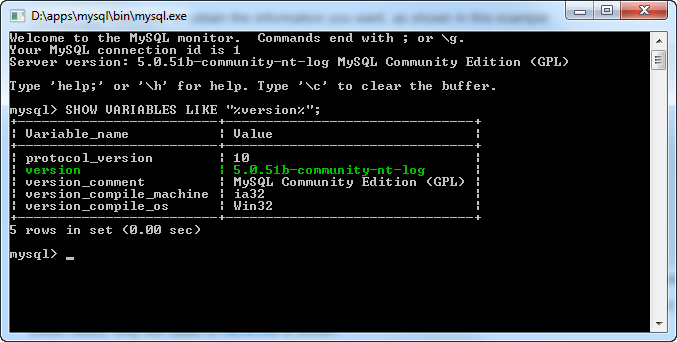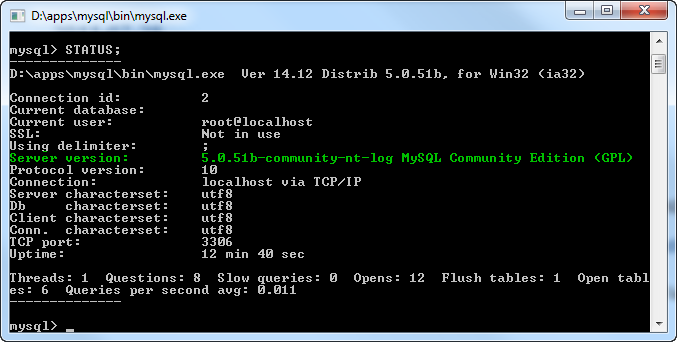How to Find Out the Version of MySQL I am Using
Visual Paradigm supports data modeling with ERD and a set of engineering features like the reverse engineering and generation of database. The features are related with each other. For example, you may generate a database from physical ERD. In order to construct a data model that helps you build a database properly, you need to name the entities and their columns properly. Besides, data types of columns should be well-considered. Just to take the type ‘char’ example, there are quite a number of similar types like varchar, varchar2, nvarchar, etc. If a wrong type is chosen for any column, you may get data corruption or result in data lost.
Visual Paradigm supports all the data types you can find in any supported database management system (DBMS). You can select any data type you want for columns when drawing ERD. As the supported data types vary depending on the target version of DBMS, you need to set in the database configuration page the version of DBMS you use. With this, Visual Paradigm can list out those supported types, preventing you from selecting a non-supported type, which result in producing an inaccurate data model.
In this article, you will learn how to find out the version of your MySQL installation. Try to follow the steps get the information needed, and select the proper version range in the database configuration window of VP-UML.
Determine the Version of MySQL
There are three options you can choose to check the version of My SQL installation.
Option 1 – Check the Welcome info in MySQL Command Client
After you have connected to MySQL with command client, you can immediately read its version on the screen, along with the welcome message.
Option 2 – Using the Version Variable
Both the version and version_comment variables prints out the version information. To use the version variable, execute the command: mysql> SHOW VARIABLES LIKE “%version%”;
Option 3 – Using the Status Command
The status command displays version as well as version comment information. Execute this command: mysql> STATUS;







Leave a Reply
Want to join the discussion?Feel free to contribute!